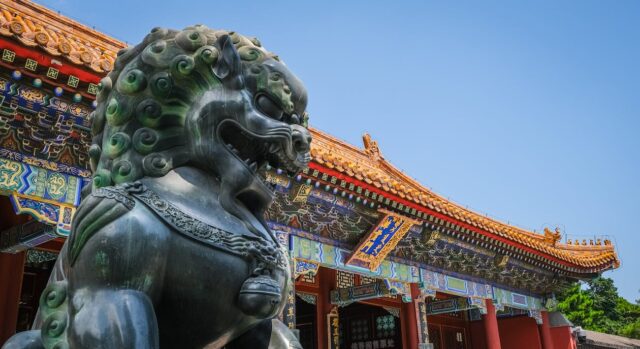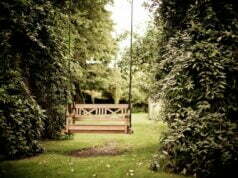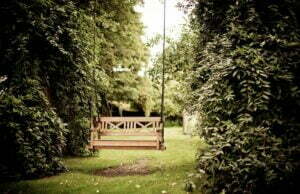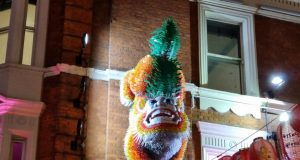What is Feng Shui, and how do you use it in a home or business?
 I have been using Feng Shui for many years to enhance various aspects of my life, and I have professionally practised Feng Shui for thousands of individuals and businesses all over the world. Feng Shui is an ancient Chinese system of knowledge believed to have originated at least five thousand years ago, and it is mentioned in surviving texts from that era. Similar systems exist in India (known as Vasthu Shastra), Tibet, and Japan (known as Nine Star Ki). Interestingly, Feng Shui also shares some similarities with the ancient Egyptian knowledge, which was brought to Europe during the Crusades and later introduced to North America by European exiles.
I have been using Feng Shui for many years to enhance various aspects of my life, and I have professionally practised Feng Shui for thousands of individuals and businesses all over the world. Feng Shui is an ancient Chinese system of knowledge believed to have originated at least five thousand years ago, and it is mentioned in surviving texts from that era. Similar systems exist in India (known as Vasthu Shastra), Tibet, and Japan (known as Nine Star Ki). Interestingly, Feng Shui also shares some similarities with the ancient Egyptian knowledge, which was brought to Europe during the Crusades and later introduced to North America by European exiles.
In the Far East, Feng Shui is widely used by businesses and individuals. In the West, there is a growing interest in Feng Shui adoption. Companies like Virgin, Arthur Andersen, HSBC, and Orange, with connections to the Far East, have been mentioned in the press for using Feng Shui. Moreover, hundreds of thousands of private individuals have also embraced Feng Shui to enhance their lives.
Despite the perception that Feng Shui is a recent development in the West, there is increasing evidence that it was used among the Victorian merchant classes, especially those with connections to the Far East.
Feng Shui is a comprehensive system that covers a wide range of areas. The Chinese believe that it takes at least five years to learn the basics and a lifetime to delve into its more advanced and powerful aspects, and as a Feng Shui Master for fourty-odd years, I am still learning, especially with period nine fast approaching in February 2024 as whatever Feng Shui cures and enhancers we used in period 8 and 7 etc will not work in period 9 and people who have had consultations done will need them updating very soon.
In ancient China, Feng Shui was an exclusive knowledge reserved for the Emperor, and its dissemination to the masses was strictly restricted. Even today, some Feng Shui Masters are cautious about revealing deep and powerful secrets to all but their most trusted pupils. Consequently, much of what is written about Feng Shui in the West can be simplistic, taken out of context, or even misleading.
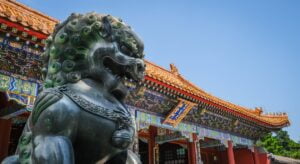
Feng Shui covers various areas, including buildings, graves, people, time, and landscapes, and all these aspects interact with one another. At its core, Feng Shui illustrates how energy, often referred to as Chi, Ki, Prana, or Life Force, flows through our environment, changing over time and influencing our lives, our buildings, our ancestors’ graves, and ourselves. In the Western perspective, this influence is often referred to as “luck.”
Many individuals can sense this energy intuitively, noticing the atmosphere of a room after an argument or the pleasant ambience in a house where people are thriving. Recently, an increasing number of people claim to see this energy visually, observing mist-like substances or colours and shapes, such as bluish-grey jagged disturbances near certain areas where Feng Shui concepts like Sha lines are involved.
Feng Shui encompasses various “systems,” each with its own supporters claiming it to be the best. In my experience, each system offers valuable insights, and when appropriately applied, they can be effective to varying degrees. Some systems may excel in specific areas, such as identifying causes of illness or improving business performance.
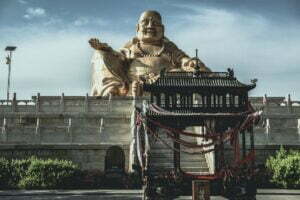
Traditional Eastern societies tend to view the bigger picture, while Western cultures often focus on details and compartmentalization. While the Western approach is useful, it can sometimes limit us when we fail to recognize how these details connect to the whole and to each other within the context of Feng Shui.
In the West, we’ve done the same “Compartmentalisation” with Feng Shui where we think about:
- “Form” school. Whether Chinese or Tibetan provides information about the effects, shapes and general topography of the landscape and is in itself a very complex subset of Feng Shui.
- “Compass” school. Which gives information about the effects associated with the Earth’s magnetic field. This is a highly complex area. For example, the “Flying Star” Xuan Kong, calculations, of which the most common (San Yuen (Three Periods), Yuen Hom (Mystery of the Void) & aspects of the Ba Chop (Eight House/mansions) formulas) give information about the interaction between a building and time. Other formulas, such as the 24 Heaven Stars of the Lo Pan, give information about how specific people and specific shapes in specific positions in the environment interact with each other and the building.
There are proponents of each who will argue that “theirs” is best and, in extreme cases, that you don’t need to bother with the other one. I will merely say that there are well-defined, if little-known, links between compass formulas and “Form”, which modify how those compass formulas express themselves. In my experience, you are wise to learn and use both simultaneously.
There are several methods for assessing the Feng Shui of people. The most popular (& simplest) is the LoShu (or 9 Star Ki) calculation, but others such as Lap Yang, Kwa, Ba Zi and Tzu Wei systems give a great deal of accurate information about a person’s life and how their circumstances change through time.
There are some interesting parallels between aspects of these and aspects of Western Astrology and Indian Vedic Astrology.
The real power to understand and create improvement comes from examining the interactions between the various pieces of information from whichever “school” or “system” of Feng Shui they originate. Intuition can play a part, but feng shui is not just an intuitive process. There are well-defined, objective links between the different aspects of Feng Shui.
But before we all get too lost in the details, remember that the basic premise of Feng Shui is that if an improvement is made in an aspect of the Feng Shui which affects you, a corresponding improvement will occur in your life or business. The more powerful the Feng Shui being applied, the greater the benefit.
